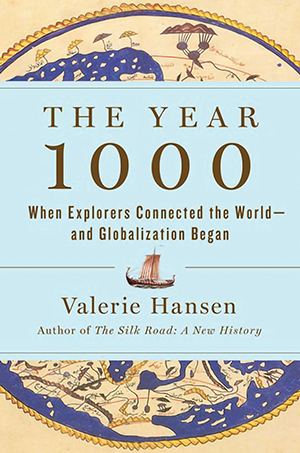 loading
loading
Arts & CultureReviews: September/October 2020Books on Bart Giamatti and the world in the year 1000.  View full imageThe Year 1000: When Explorers Connected the World and Globalization Began Hansen, a professor of Chinese and world history at Yale, deftly surveys the intertwined stories of empires, trade routes, travelers, warriors, missionaries, and diplomats around the turn of the first millennium. “The year 1000 marked the start of globalization,” she writes. “This is when trade routes took shape all around the world that allowed goods, technologies, religions, and people to leave home and go somewhere new.” The book is breathtaking in scope, drawing on ancient texts and archaeological evidence ranging across indigenous cities of the Americas to Oceania and every inhabited continent in between. She retraces the steps of many characters, from wandering Arab scholars to Polynesian sailors who made it all the way to Madagascar with no navigational tools other than their knowledge of the clouds, migrating birds, waves, and stars. Occasionally the texture of everyday life is palpable, even at the distance of a thousand years. For instance, one of Hansen’s themes is the role of body odor in driving the global economy: most people rarely bathed, and were constantly seeking aromatic spices and perfumes from far-flung places. Even if our personal hygiene has come a long way, our species has really not changed that much in a thousand years—and globalization has always had an ugly side. Hansen does not neglect the violence, religious and ethnic hatred, and merciless economic exploitation of the early middle ages. She joins other historians who have recently looked to ancient history to reflect on the narrow minds and prejudices of our own time. “If you strip away all the gadgets and technology, people remain very much themselves,” Hansen writes. Like SPQR, Mary Beard’s 2015 history of ancient Rome, and Douglas Boin’s biography of Alaric the Goth, The Year 1000 shows us that back then, like today, long-term success seems to come to those who give strangers the benefit of the doubt, invite the immigrant in, and take the time to learn about other cultures. Molly Worthen ’03, ’11PhD, is associate professor of history at the University of North Carolina–Chapel Hill.
|
|